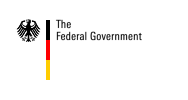Musicals in Hamburg, modern ballet in Wuppertal, contemporary paintings in Berlin or theatre in Weimar – art and culture are there to be experienced all over Germany. The level of interest is high: around 35 million spectators attend more than 100,000 theatre productions and more than 7,000 concerts year by year. And if you do not want to see Goethe’s ‘Faust’ or hear Beethoven’s symphonies, you can improve your knowledge of art from prehistory to the present day in one of 6,000 museums.
Germany is the custodian of a rich cultural heritage
In all parts of the country, testimonies to a rich cultural heritage can be found. These include not only the works of the great German ‘poets and thinkers’ and the castles and stately homes that pepper the whole country, but also modern product design, historical city parks and housing developments from the nineteen twenties.
In Germany there are many large and small cultural centres. This is because of the federal structure of the country, which also confers upon the federal states a great responsibility to promote culture. This is why, in Germany, a varied cultural life is played out, even in the small towns.
Thirty cultural sites in Germany have been declared world cultural heritage sites by UNESCO. This includes Aachen Cathedral, the Würzburg Residence and Classical Weimar, the city of Goethe and Schiller. As centres of unique atmosphere and great historical value, they provide the opportunity to learn more about the life and culture of the German people in past centuries.
A vibrant music and theatre scene
Music has always been a number-one priority in Germany. Nowadays more than 130 orchestras vie for the attention of countless music fans. Opera houses, even in small towns, offer an extensive repertoire. Festivals like the Bayreuth Festspiele and the Bach Festival in Leipzig constitute further examples of large-scale events that attract international audiences. The modern music scene is equally vibrant: Musicals, rock-pop events or jazz concerts are on the programme just about everywhere.
Literature, too, can be experienced ‘live’ in many places. And not merely at the Frankfurt Book Fair, that has developed into the main springboard for the works of young men and women authors. Readings can be heard everywhere: in bookshops, at literature festivals and on small and large stages. In addition to the works of contemporary authors, it is there that the classical literature flame is kept burning, in particular. And with great success: Goethe’s ‘Faust’ is still the play that is performed most often in Germany.
Especially attractive: The new museum developments
The many new museums and art galleries are also spread across the country. Besides the large historical collections in Munich, Cologne, Dresden and Berlin, it is, above all, the new museum developments in Leipzig, Stuttgart and even on the Island of Hombroich, that have proven to be real magnets for the general public. What is on offer there is far more than new architecture; it is art from all eras, presented in interesting, and frequently unusual contexts.
Spatial installations, video art and new photography – anyone who wants to find out more about the current trends in contemporary art should visit one of the many art galleries in Düsseldorf, Cologne or Berlin. A young gallery scene has now established itself here, and it is also finding international recognition.
Tradition and avant-garde in Berlin, the capital
Berlin plays a special role in Germany’s cultural life. As the capital of the former Prussia, Berlin has a magnificent past. The Foundation for Prussian Cultural Heritage, one of the largest cultural organisations in the world, houses and takes care of the treasures of this unique heritage. The Museumsinsel, which is undergoing costly renovation work that will take until 2009, is already an absolute ‘must’ for everyone who visits Berlin.
However, in Germany’s capital the important works of classical modernity are very much alive, as well: In Berlin, Berthold Brecht’s plays find as large an audience as Marlene Dietrich’s films and the ‘Die Brücke’ group’s expressionist paintings.
The new German capital also has a lot to offer as far as modern art is concerned: In Berlin, it is not only sensational theatre presentations and exciting art and music events that take place. The cinema scene is also legendary, attracting people to events not only during the ‘Berlinale’ festival season, where the latest international productions are put on.
